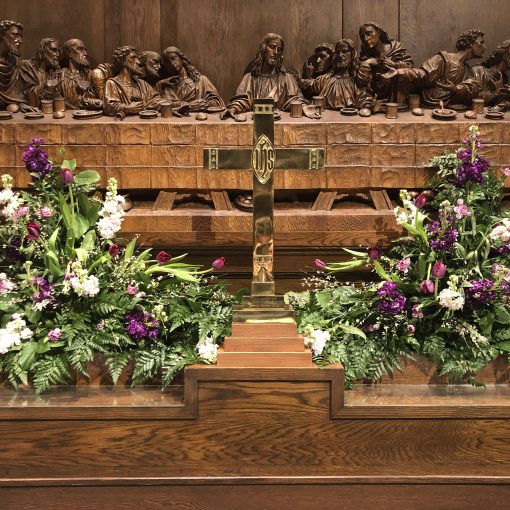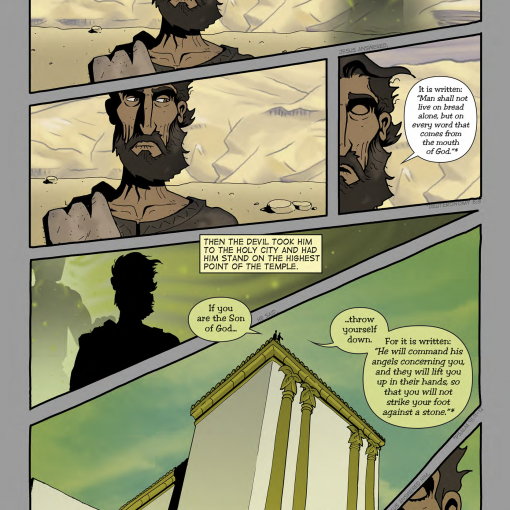I have mentioned before, three years ago, in fact, that I am working on a devotional book called “Characters of God.” This Lent I led our Adult Forum class (sounds vaguely naughty when I write that out) at our church through several of these chapters. This past Sunday was Paul and I don’t believe that I have ever shared it on this site. Keep in mind this was originally written to be read aloud at a silent retreat (oxymoronic, I know, but if you have ever been on one you know the drill, leader reads a meditation, you go off and meditate). There is much that I would rewrite today, but I thought I would simply post it as is. I hope it is useful during the Lenten season.
Acts 7.54 When they heard these things, they became enraged and ground their teeth at Stephen. 55 But filled with the Holy Spirit, he gazed into heaven and saw the glory of God and Jesus standing at the right hand of God. 56 “Look,” he said, “I see the heavens opened and the Son of Man standing at the right hand of God!” 57 But they covered their ears, and with a loud shout all rushed together against him. 58 Then they dragged him out of the city and began to stone him; and the witnesses laid their coats at the feet of a young man named Saul. 59 While they were stoning Stephen, he prayed, “Lord Jesus, receive my spirit.” 60 Then he knelt down and cried out in a loud voice, “Lord, do not hold this sin against them.” When he had said this, he died. 1 And Saul approved of their killing him.
That day a severe persecution began against the church in Jerusalem, and all except the apostles were scattered throughout the countryside of Judea and Samaria. 2 Devout men buried Stephen and made loud lamentation over him. 3 But Saul was ravaging the church by entering house after house; dragging off both men and women, he committed them to prison.
Acts 22.3 “I am a Jew, born in Tarsus in Cilicia, but brought up in this city at the feet of Gamaliel, educated strictly according to our ancestral law, being zealous for God, just as all of you are today. 4 I persecuted this Way up to the point of death by binding both men and women and putting them in prison, 5 as the high priest and the whole council of elders can testify about me.”
Gal. 1.13 You have heard, no doubt, of my earlier life in Judaism. I was violently persecuting the church of God and was trying to destroy it. 14 I advanced in Judaism beyond many among my people of the same age, for I was far more zealous for the traditions of my ancestors. 15 But when God, who had set me apart before I was born and called me through his grace, was pleased 16 to reveal his Son to me, so that I might proclaim him among the Gentiles….
Rom. 10.1 Brethren, my heart’s desire and prayer to God for them is that they may be saved. 2 I bear them witness that they have a zeal for God, but it is not enlightened.
We do not know very much about Paul before he was confronted by Christ on the road to Damascus. What we do know is contained in these few passages.[1] As “Saul” he was a man devoted to “the traditions of my ancestors” and he used all his power in order to stamp out heresy and to keep heterodox views of Judaism from spreading. This included jailing people and perhaps even having them put to death. (Note the phrase “I persecuted this Way up to the point of death” [Acts 22.4], which might suggest that he did not actually seek their execution, but that may simply be a reflection of the fact that the Jews did not have the authority to execute anyone during Roman times.)
Saul’s zeal took him to great extremes and the consequences were dire for those whom he opposed. We can all think of various moments in history, sadly including present day situations, where an individual’s or group’s commitment to their ideology and theology led them to commit atrocities. And it is easy for us to condemn such actions. We hear frequently within our own church about those who are encouraging hatred of others under the guise of defending orthodoxy and our minds swirl with images of Galileo and Cranmer. But is zeal always bad? That is a much harder question to ask.
Within the Bible we find that the term “zeal” is used primarily in a positive manner, even if the Hebrew and Greek terms have at the root the meaning of “jealousy.”[2] The priest Phinehas, Aaron’s grandson, saves all of Israel from God’s wrath by killing a man and the Moabite woman whom he had taken as a concubine and who were together worshipping Baal. The Psalmist tells us that he has been persecuted by others because of his zealous commitment to the Lord and his Temple.
Psa. 69.9 It is zeal for your house that has consumed me;
the insults of those who insult you have fallen on me.
10 When I humbled my soul with fasting,
they insulted me for doing so.
11 When I made sackcloth my clothing,
I became a byword to them.
12 I am the subject of gossip for those who sit in the gate,
and the drunkards make songs about me.
And Paul encourages the church in Rome, calling upon them to be strong in their stand for Christ. Rom. 12.11 “Do not lag in zeal, be ardent in spirit, serve the Lord.” To be zealous, or jealous, for God is not a bad thing. In fact, in issuing the Ten Commandments God declares himself a “jealous” God, meaning that he has laid claim to us as his people and he does not want us to share our love and commitment with any other. Ex. 20.5 “You shall not bow down to [other gods] or worship them; for I the LORD your God am a jealous God.”
Today when we speak of jealousy in a relationship we see it as an unhealthy attitude, as it is, but that is not how the term is used in the Bible. Consider a marriage, which is one of the primary analogies for God’s relationship to his people. It is appropriate and expected that a husband or wife should be upset and challenge their spouse if the other is spending undo time and inappropriate attention to a person of the opposite sex. I am in a spiritual contract with my wife in which I promised her that I would be faithful and would not have sexual relations with another woman. It is right and good that we are “jealous” of our wives, as women ought to be of their husbands, in that we do not want them to be in the same sort of intimate relationship with someone else that we have with them. It becomes unhealthy when we do not trust our wives or our husbands. That is what is so marvelous about God’s jealousy towards us. He trusts us to make the mistakes ourselves, but he continues to love us and yes, he does punish when we break that trust, that covenant that we have. His punishment, however, is primarily intended to bring us back in repentance to him.
So there is zeal that is healthy and good, but there is also the unhealthy zeal that Paul describes in his own life prior to meeting Christ. The question then becomes what was unhealthy about the zeal of Saul? One obvious answer is the results. We would think that imprisoning people is not a nice thing to do, but within the context of the Torah the penalties for apostasy were severe. Jesus did proclaim a new way of loving our enemies, yet Saul was not yet “Paul” who knew and obeyed Jesus. The crime of Saul’s zeal was what he was jealous for. Saul was defending the “traditions of the elders” and not Torah and the revealed prophesies of God. Saul’s allegiance was misplaced in the traditions that surrounded the Torah rather than in the actual revelation of God. This is a tradition that is all too common in our own lives and churches.
We are a church that places a large emphasis upon tradition and that is not a bad thing. Far from it! Much of what we believe and hold true comes through the inspired medium of tradition (that is one definition of prophecy, after all), but we must be cautious that when we “defend the faith” we are doing just that, defending the Gospel of Christ and not some additional tradition that is, on the whole, peripheral to the message of salvation. This is often a difficult balance to achieve and you may find that while you think you are defending an “essential” element of faith, someone else will say that you are merely being a “Pharisee.” Paul, in fact, was a Pharisee and it was their particular traditions that he clung to.
The Pharisees where essentially lawyers. Their name is derived either from paroshim, “those who distinguish precisely [between laws]”; or perushim, “those who have split” or “separated.” [from other Jews]. The Pharisees believed that God and humans worked together to determine destiny, much as orthodox Christianity does, and they believed in the resurrection of the righteous and judgment of the wicked, which Christianity also maintains. But the primary belief that distinguished the Pharisees from other Jewish groups of the day was their concern with halekhot, the “ways” or precise rules for everyday religious practices. It is these practices that Paul refers to when he says that he was zealous for “the traditions of the fathers.” The laws were in addition to the laws given by God on Mt. Sinai and were very specific in detail. We find reference to them throughout the Gospels as Jesus and his disciples, for example, are chastised for not cleansing themselves properly before meals and not fasting on certain days. The Pharisees were, in all likelihood, the spiritual predecessors of the rabbis who codified the Mishnah, the collection of these oral traditions and laws, in c. 200 CE.
Saul’s zeal was not for the Law and the prophets of the Bible, but for the traditions, the rules and regulations, that had accreted over the years. He was so focused upon “right practice” that he neglected “right belief” and could not hear God calling to his people saying, in the words of Jeremiah:
Jer. 31.31 The days are surely coming, says the LORD, when I will make a new covenant with the house of Israel and the house of Judah. 32 It will not be like the covenant that I made with their ancestors when I took them by the hand to bring them out of the land of Egypt—a covenant that they broke, though I was their husband, says the LORD. 33 But this is the covenant that I will make with the house of Israel after those days, says the LORD: I will put my law within them, and I will write it on their hearts; and I will be their God, and they shall be my people. 34 No longer shall they teach one another, or say to each other, “Know the LORD,” for they shall all know me, from the least of them to the greatest, says the LORD; for I will forgive their iniquity, and remember their sin no more.
We too must be cautious that we are not neglecting the heart-driven message of God for the details of our peculiar practice. Is it appropriate that we should celebrate the Eucharist using wine and genuflecting before the altar? Absolutely. Is it vital to one’s salvation that they should celebrate the Eucharist in this way? No. Does it matter whether we use the Revised Standard Version of the Bible or the New Revised Standard Version? No. Just so long as we are studying the living Word of God and seeking his will and purpose in it and through it. We must always seek unity in the Church and there are certain fundamental beliefs that we must cling to, primarily those contained within the Creeds, but there will be differences and we deal with those in charity rather than with an oe’er weening zeal.
We must also recognize that we can be inappropriately zealous for things besides the Church. Those of you who know me even slightly are aware of my passion for computers and gadgets. My brother has often accused me of being an “Apple zealot” since I am so fond of their particular products and I confess that when I first gave this talk at a retreat I thought about the fact that I while on the retreat I was missing Apple’s release of their new operating system, OS X. Can you tell that this is a “preoccupation” that I need to work on? We each have them. For some it may be work, money, cars, computers, or perhaps sex. The list is endless. In all of these things there is an appropriate amount of attention that we ought to dedicate to, for example, our families and our jobs. But if that jealousy moves into lack of trust and overwhelming mental and spiritual commitment then we must reevaluate. When “Saul” became “Paul” he did not become any less zealous. Instead his zealousness was redirected into the service of Christ.
Acts 9.3 Now as [Saul] was going along and approaching Damascus, suddenly a light from heaven flashed around him. 4 He fell to the ground and heard a voice saying to him, “Saul, Saul, why do you persecute me?” 5 He asked, “Who are you, Lord?” The reply came, “I am Jesus, whom you are persecuting. 6 But get up and enter the city, and you will be told what you are to do.” … 17 So Ananias went and entered the house. He laid his hands on Saul and said, “Brother Saul, the Lord Jesus, who appeared to you on your way here, has sent me so that you may regain your sight and be filled with the Holy Spirit.” 18 And immediately something like scales fell from his eyes, and his sight was restored. Then he got up and was baptized, 19 and after taking some food, he regained his strength.
For several days he was with the disciples in Damascus, 20 and immediately he began to proclaim Jesus in the synagogues, saying, “He is the Son of God.” 21 All who heard him were amazed and said, “Is not this the man who made havoc in Jerusalem among those who invoked this name? And has he not come here for the purpose of bringing them bound before the chief priests?” 22 Saul became increasingly more powerful and confounded the Jews who lived in Damascus by proving that Jesus was the Messiah.
I think most of us are probably familiar with Saul’s encounter with Christ on the road to Damascus, but most of us (but not all) probably find it a little difficult to relate to such a miraculous encounter with God. How are we to find guidance and example in Paul’s transformation for our lives? What is important in this testimony is not the manner of Jesus’ confronting Saul. It is simply the fact that Saul was confronted by Jesus. How, when, where…none of that matters. What matters is that Saul encountered Jesus through the realization (revelation!) that he was, in fact, the Son of God and the Messiah. Paul then began to realize that the Cross was not the curse that he had believed, it was not the mark of a failed human messiah, but the sign of salvation for all who believe. This fact transformed Paul’s life and the zeal with which he had persecuted the Church he now used to grow, to strengthen, and to encourage the Church.
This is the fact that we too must confront. Is Jesus the Son of God, the Messiah, and Lord of my life? If that is what we believe then the “zeal” in our lives must be directed towards God and the things of God. Where do we spend our energy? Is the time we spend at work appropriate or ought we to put some of that time back into our family? Or are we spending our time and energy running away from our obligations with God, family, and work? Essentially we need an audit of our lives. Where are we spending our energy, not just time, but our thoughts, our prayers, ourselves. Is it on those things which are of God or of This World?
Holy Spirit, be with us in these coming hours as we examine our lives so that we might be guided to see clearly the “budget” of our lives. Convict us when we need to spend less on those things that are of this world. Motivate us to be concerned for those people and needs of this world that are on your heart. Enable us to see when we are being devoted to the Institution of the Church rather than the Founder of our Faith.
Allow us to follow Paul’s exhortation:
Rom. 12.9 Let love be genuine; hate what is evil, hold fast to what is good; 10 love one another with mutual affection; outdo one another in showing honor. 11 Do not lag in zeal, be ardent in spirit, serve the Lord.
Amen.






One thought on “Zealous much? Paul, Character of God”
Great article! I found this very helpful in some research I’m doing – thanks.